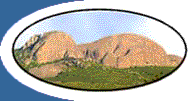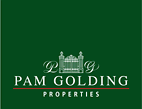THIS year we are bound to read a lot about Charles Darwin.
The world famous evolutionist was born on 12 February 1809 two hundred years ago. The Origin of Species was published 150 years ago and The Descent of Man 130 years ago.
Darwin boarded The Beagle in 1831 as a 22-year-old Cambridge graduate by invitation: not as a scientist, but to keep Captain Robert Fitzroy company while The Beagle surveyed the coast of South America. In modern terms, Darwin was taking a “gap year”.
By the time The Beagle docked in Simonstown on 31 May 1836, Darwin had been travelling for almost five years, was 27 years old and judging from a letter he wrote from Mauritius, homesick.
He arrived in Cape Town by evening and although he was astonished by the number of boarding houses in the city, all hotel rooms were taken up. He ascribes the shortage to the large number of ships from India in the harbour.
He describes Cape Town as a city with a slightly foreign air, arranged in an orderly grid of white-washed houses, squares, avenues of trees and gravel covered roads.
On the streets everybody spoke some English, although he found the Dutch and French less friendly towards the English. Freed slaves formed a large proportion of the city’s population.
Darwin was hugely impressed by the number of ox wagons in the streets. It was not unusual to see a wagon yoked with 18 oxen, although he had heard of as many as 24 at a time. He also noticed wagons and carts with four, six and eight horses in hand.
He also visited the world famous astronomer John Herschel. Herschel had a private observatory at his home in Claremont and was working on a four year study to catalogue the southern hemisphere’s nebulae, double stars and clusters.
Herschel’s father Sir William had completed a similar study for the northern hemisphere.
Darwin also met Dr Thomas Maclear, the director of the Cape’s Royal Observatory. History will remember Maclear for his extensive geographical surveys of the Cape Colony (hikers on Table Mountain will be familiar with Maclear’s beacon).
Dinner conversations with the two astronomers would certainly have included the recently observed Halley’s Comet.
On day four of his visit Darwin was ready to venture into the countryside. His idea was to travel as far as Paarl, cross the Franschhoek Pass and then return via the new Sir Lowry’s Pass (completed in 1830) back to Cape Town.
He gives an interesting account of the infamously sandy road across the Cape Flats: “In order to find hard material the whole road had been bored to a depth of 40 feet”.
Paarl he describes as a long village with houses that looked as if they had been “picked off a street and scattered in the open country side”.
The streets were lined with avenues of small oaks and “the whole village possessed an air of quiet and respectable comfort”.
Darwin was also amazed at the number of vineyards of “considerable” size.
He booked into a boarding house, and then climbed Paarl Mountain to look at the granite rocks and survey the valley (later entries in his notebook suggests that he was particularly interest in geological formations).
The Sunday morning trip to Franschhoek took three hours, and he describes Franschhoek as “one of the prettiest places I saw in the colony”.
His comment that considerable work must have gone into building the pass, suggests that he was taking more than a passing interest in its construction.
The pass, completed in 1825, was the first engineered pass in the Cape. That night he found lodgings at or near the “toll-bar” on the other side of the pass.
Two days later he was back in Cape Town. The Beagle left Cape Town on 18 June.
Darwin leaves us with two amusing observations: He found the “Dutch” farmers at the Cape very hospitable, but unlike the Spanish peasant who “never ask(ed) his guest a single question beyond the strictest rule of polite- ness,(the Dutchman) demands where he has been, where he is going, what is his business, and even how many brothers, sisters or even children he may happen to have”.
The other was that local traders had one price for the Dutch, and another, much higher, price for the English (tourist).
Some things never change.


